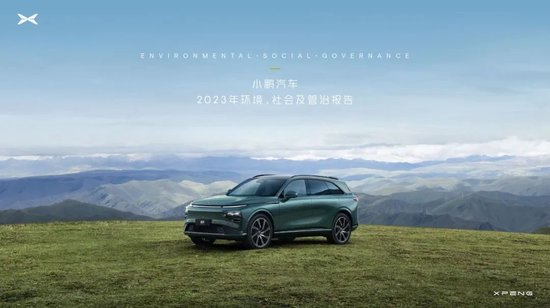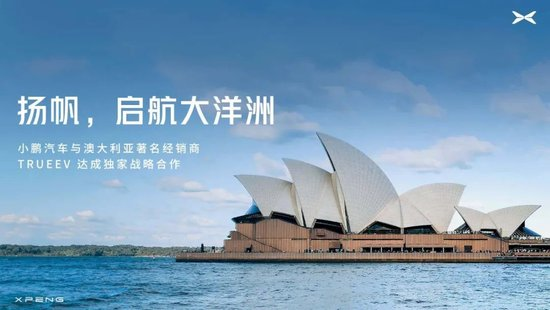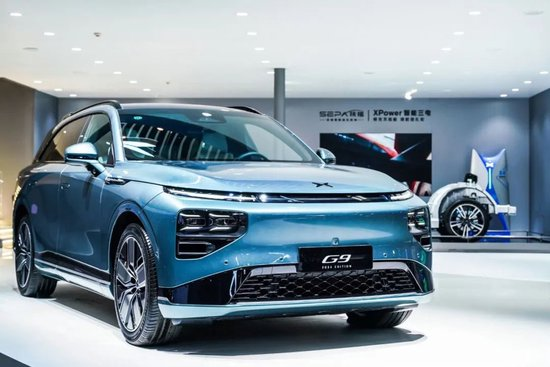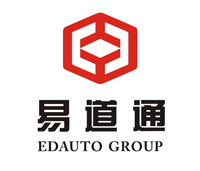Earning the highest ESG rating in the world, what did this car company do right?|36 Carbon Focus

Almost every year, ESG is dubbed the "first year".
Today, it is no longer a buzzword that stays on paper, but has truly stepped into the "deep water zone" and accepted more practical tests:
ESG information disclosure has begun to become a required compliance question for more companies, and ESG ratings have gradually become an important point for winning overseas orders... When ESG begins to be closely linked to product business and revenue growth, its importance and priority are naturally self-evident.
Focusing on new energy vehicles, ESG has also set off a wave of transformation for car companies. Although it has become a consensus that new energy vehicles have inherent advantages when it comes to environmental friendliness, ESG not only encompasses the dimension of environmental protection, but also encompasses all factors of social impact and corporate governance.
From an overall ESG perspective, not every new energy vehicle company can be counted as an ESG top student.
As far as the automotive industry itself is concerned, behind each vehicle is a long and complex supply chain. In addition, each country has its own customized interpretation and requirements for ESG. The industry has not yet established specific ESG standards. This undoubtedly creates Corporate ESG practices add to the difficulty.
In the journey of car companies looking for ESG, some "top students" have begun to emerge, and XIAOPENG Motors is one of the representatives.
Not long ago, on April 17, XIAOPENG Motors released the "2023 Environmental, Social and Governance Report (hereinafter referred to as the "ESG Report"). In the issue importance matrix, Xiaopeng listed product quality and safety, business ethics, customer service and satisfaction as the core issues of the company, and obtained a dazzling "ESG report card" by virtue of its high-quality performance in each issue.

In 2023, the international authoritative index institution Morgan Stanley (MSCI) raised XIAOPENG Motors' ESG rating from "AA" to the world's highest "AAA" level. This achievement not only surpasses the major established car companies, but also surpasses Tesla and other new energy vehicle companies.
Among them, MSCI has given evaluations that are higher than the industry average in many key indicators such as clean technology development prospects, product carbon footprint, and corporate governance.
Facing the severe challenges brought about by global climate change, the wave of ESG transformation is sweeping across thousands of industries. When many car companies begin to engage in ESG transformation, XIAOPENG Motors is already at the forefront of the industry.
1.When cars become “smarter”, how can smart driving technology empower ESG?
"The last decade was a decade of new energy, and the next decade is a decade of intelligence." He Xiaopeng, chairman and CEO of XIAOPENG Motors, said at this year's Beijing Auto Show.
He has always believed that the core turning point of electric vehicles lies in intelligence, not styling and cost. This is why XIAOPENG Motors made a firm bet on smart technology as early as ten years ago.
This forward-looking decision has now been verified by time. "AI large models accelerate onboard" has become a keyword at this year's Beijing Auto Show, and this theme has opened the second half of the competition for new energy vehicles.

However, there are still some doubts in the market: Which one is more reliable, smart driving technology vs. human judgment?
From the perspective of technical principles, smart driving technology is essentially a complex system project with AI technology as the core driving force. It not only needs to have more efficient driving performance, but also needs to be able to process massive amounts of data with ease, and provide accurate perception and control during driving. Planning and control support.
With the help of high-precision sensors and advanced algorithms, smart driving technology can comprehensively perceive and analyze information about the surrounding environment, providing accurate decision-making basis for vehicles.
In contrast, manual driving relies heavily on the driver's visual and auditory perception, which may sometimes be affected by fatigue, emotion, distraction and other factors, leading to biased perception and judgment of the environment.
If linked to ESG issues, the automotive industry is a typical industry with strong products and strong services. Product quality and safety are directly related to consumers' life safety and product experience, which undoubtedly makes it a top priority in the ESG work of automobile companies.
In the latest ESG report released by XIAOPENG Motors, "product quality and safety" is listed as the core issue in the corporate ESG importance matrix.
XIAOPENG Motors believes that behind smarter functions are actually high-quality safety products as the backing. The greatest value of high-end smart driving is to help reduce accident rates. Data shows that in 2023, when XIAOPENG car owners turn on intelligent driving, the average accident rate per million kilometers will be about 1/10 of that in manual driving.
He Xiaopeng also said previously that with the improvement of intelligent driving capabilities in the future and the arrival of the autonomous driving era in which cars, roads and clouds collaborate, this number is expected to drop to between 1% and 1‰.
From the top-down management system level, XIAOPENG Motors has written quality and safety into its governance structure. The company has currently established a company-level quality and safety management system and a product safety management committee, with a product safety management office and an internal product safety working group to form a joint working mechanism.
If it comes to a more specific product dimension, intelligent driving and intelligent cockpit are regarded as the focus of XIAOPENG Motors' technology research and development, and are also the main areas of the company's research and development work.
According to XIAOPENG Motors' ESG report, the company's R&D investment has increased continuously in the past four years. In 2023, XIAOPENG Motors' investment in product and technology research and development has exceeded 5.2 billion yuan, and R&D personnel account for 40% of the company's employees. This number is still increasing, and XIAOPENG Motors’ investment in technology research and development this year is expected to exceed 6 billion yuan.
Smart technology is still evolving at a rapid pace and is reshaping the way we live, work, and play in all aspects. However, from the perspective of social public value, smart technology should not be the exclusive privilege of a few high-end consumer groups, but should widely benefit every corner of society.
Using technology cost optimization to promote inclusive technology is also regarded by XIAOPENG Motors as an important future layout direction. The company is committed to lowering the threshold for intelligent products so that the dividends of technology can truly benefit everyone, thereby reducing the digital divide between social classes.
At the China Electric Vehicle 100 Forum in March this year, He Xiaopeng announced for the first time that XIAOPENG Motors would soon launch a new brand and officially enter the 150,000-yuan global automobile market, committed to creating "young people's first AI smart driving car." Let more consumers enjoy the convenience brought by smart driving technology.
Not only that, XIAOPENG Motors is also actively participating in various public welfare activities and social responsibility projects. The company established the XIAOPENG Foundation as early as 2021. This is also the first corporate foundation in China's new energy vehicle industry to focus on ecological and environmental issues. Through environmental science education activities such as new energy vehicle science popularization, low-carbon travel advocacy, and biodiversity protection publicity, more people can understand ecological and environmental protection knowledge.
Behind the eye-catching ESG report card is actually XIAOPENG Motors’ years of profound technological accumulation and social responsibility.
This also makes XIAOPENG Motors’ smart technology accumulation and ESG two complementary fields. The former is about using smart technology to promote equal rights for consumers and industry innovation and change, while the latter means creating more responsible long-term value for stakeholders. Together, they continue to empower issues such as product safety, technological innovation, and social responsibility.
2.The first step to go overseas is to do ESG well.
As one of the "three new products" of export, China's new energy vehicles have suddenly emerged in overseas markets. The latest data from the China Association of Automobile Manufacturers shows that from January to April 2024, my country exported 421,000 new energy vehicles, a year-on-year increase of 20.8%.
Nowadays, the overseas strategy of Chinese car companies is also constantly expanding. From the past simple export of products overseas, it is accelerating to expand the overseas export of technology and industrial chain.
Starting from 2020, XIAOPENG Motors has started its overseas layout and will turn a new page in 2024.

In the open letter to open the year of 2024, He Xiaopeng defined this year as "the first year of XIAOPENG's internationalization V2.0" and stated that it will comprehensively create a new path to globalization in terms of products, intelligent driving, and branding.
This determination is confirmed by the continued expansion of its overseas territory. In May 2024, XIAOPENG Motors successively announced its entry into the Australian market and the French market, and the internationalization 2.0 strategy is accelerating.
However, in order to get more cake in the international market, ESG work is becoming a key weight. Whether ESG is done well or not is directly related to whether it can win an order.
Especially in different markets, the requirements for this "admission ticket" also vary. Facing the policy standards of different countries and regions, car companies need to make corresponding adjustments in their response plans.
For example, the EU’s standards in the field of ESG have always been the benchmark for industry policies. The Corporate Sustainability Reporting Directive (CSRD), the New Battery Act, and the EU Carbon Border Adjustment Mechanism (CBAM) passed by the European Council in the past two years have imposed requirements on companies’ sustainable information disclosure from different dimensions.
"Take CBAM as an example. This regulation assesses the embodied carbon emissions of EU imported products, and export companies may face additional tariff requirements. This regulation directly bypasses the complete vehicle products and focuses on fasteners in after-sales automotive spare parts, such as Nuts, etc." said the person in charge of ESG of XIAOPENG Motors.
Another example is the New Battery Law, which not only requires the disclosure of the full life cycle product carbon footprint of car batteries, but also requires the provision of a battery passport, the disclosure of various detailed information, and the introduction of carbon emission limits and due diligence requirements.
3.This means that ESG requirements have been refined to every capillary in the industrial chain.
From the procurement of raw materials and chemicals to precision parts and vehicle assembly, the supply chain behind a vehicle is long and complex. Creating a more transparent, responsible and sustainable supply chain system is even more of an arduous task.
Take carbon reduction as an example. Although electric vehicles naturally have low-carbon attributes, carbon reduction is still a difficult problem if it can be traced back to the mining and processing stages of raw materials, or the reprocessing of batteries after they are discarded.
Starting from 2022, XIAOPENG Motors has established a company carbon emission measurement system and established a carbon footprint assessment system for full-production models to conduct internal calculations of the company's carbon emissions and the life cycle carbon emissions of each model.
At the same time, XIAOPENG Motors also carries out sustainable management for its suppliers throughout the life cycle, including supplier access, audit, risk management and ESG assessment. Among them, relevant policies on environmental management have covered the entire business process, from production operations, waste management, handling environmental impacts, to logistics distribution and driving suppliers and contractors to reduce carbon emissions.

This is closely integrated with XIAOPENG Motors’ continuously iterative ESG governance structure.
In conjunction with the company's ESG strategic planning, as well as changes in the ESG market and policy environment at home and abroad, XIAOPENG Motors has established a parallel "E/S/G/Communication Matrix Group" and "ESG Implementation Working Group" to assist in the management of various ESG-related matters. affairs, further subdivide and clarify the rights and responsibilities of each sector, and improve the efficiency of handling ESG affairs.
Not only that, the company has also introduced targeted module experts, such as technical experts in the battery field and experts in overseas policies and regulations, to enhance the committee's flexibility in policy response. At the overall level, XIAOPENG Motors formulates a longer-term ESG strategic plan based on global ESG development predictions and future policy trends, and conducts full operational evaluation when the strategy is implemented to ensure its sustainability and economy.
Of course, teaching someone to fish is worse than teaching someone to fish. In the face of systemic sustainable transformation problems, XIAOPENG Motors has empowered more suppliers with its experience and technology, including launching assistance programs and regularly holding supplier experience sharing to improve the overall quality level of the supply chain.
In 2023, Xiaopeng has been selected into the green manufacturing list of the Ministry of Industry and Information Technology and won the title of "National Green Supply Chain Management Enterprise".
The overseas expansion of enterprises is regarded as a new growth driver, and we also see the other side of the coin. In the current global trade environment, unforeseen factors and trade restrictive measures are intertwined, which undoubtedly adds additional challenges to companies going overseas.
XIAOPENG Motors also stated that the company will always pay attention to changes in regulations, maintain in-depth exchanges with relevant national departments, industry peers, and authoritative professional institutions, actively respond to green rules that are truly beneficial to the development of the international community, and respond to regulations with obvious green barriers. The rules of attributes give voice to Chinese car companies.
The rapid rise of new energy vehicle companies in China has only lasted for nearly ten years, and the topic of ESG has only really entered the public eye in the past three to five years. The integration of car companies and ESG is still an area that has yet to be explored in depth, and every participant is feeling their way through uncharted waters.
But at this time, XIAOPENG Motors has seized the opportunity and done many things that have led and even changed the industry, and will continue to explore more possibilities on a long-term path.
This means that ESG requirements have been refined to every capillary in the industrial chain.
From the procurement of raw materials and chemicals to precision parts and vehicle assembly, the supply chain behind a vehicle is long and complex. Creating a more transparent, responsible and sustainable supply chain system is even more of an arduous task.
Take carbon reduction as an example. Although electric vehicles naturally have low-carbon attributes, carbon reduction is still a difficult problem if it can be traced back to the mining and processing stages of raw materials, or the reprocessing of batteries after they are discarded.
Starting from 2022, XIAOPENG Motors has established a company carbon emission measurement system and established a carbon footprint assessment system for full-production models to conduct internal calculations of the company's carbon emissions and the life cycle carbon emissions of each model.
At the same time, XIAOPENG Motors also carries out sustainable management for its suppliers throughout the life cycle, including supplier access, audit, risk management and ESG assessment. Among them, relevant policies on environmental management have covered the entire business process, from production operations, waste management, handling environmental impacts, to logistics distribution and driving suppliers and contractors to reduce carbon emissions.
This is closely integrated with XIAOPENG Motors’ continuously iterative ESG governance structure.
In conjunction with the company's ESG strategic planning, as well as changes in the ESG market and policy environment at home and abroad, XIAOPENG Motors has established a parallel "E/S/G/Communication Matrix Group" and "ESG Implementation Working Group" to assist in the management of various ESG-related matters. affairs, further subdivide and clarify the rights and responsibilities of each sector, and improve the efficiency of handling ESG affairs.
Not only that, the company has also introduced targeted module experts, such as technical experts in the battery field and experts in overseas policies and regulations, to enhance the committee's flexibility in policy response. At the overall level, XIAOPENG Motors formulates a longer-term ESG strategic plan based on global ESG development predictions and future policy trends, and conducts full operational evaluation when the strategy is implemented to ensure its sustainability and economy.
Of course, teaching someone to fish is worse than teaching someone to fish. In the face of systemic sustainable transformation problems, XIAOPENG Motors has empowered more suppliers with its experience and technology, including launching assistance programs and regularly holding supplier experience sharing to improve the overall quality level of the supply chain.
In 2023, Xiaopeng has been selected into the green manufacturing list of the Ministry of Industry and Information Technology and won the title of "National Green Supply Chain Management Enterprise".
The overseas expansion of enterprises is regarded as a new growth driver, and we also see the other side of the coin. In the current global trade environment, unforeseen factors and trade restrictive measures are intertwined, which undoubtedly adds additional challenges to companies going overseas.
XIAOPENG Motors also stated that the company will always pay attention to changes in regulations, maintain in-depth exchanges with relevant national departments, industry peers, and authoritative professional institutions, actively respond to green rules that are truly beneficial to the development of the international community, and respond to regulations with obvious green barriers. The rules of attributes give voice to Chinese car companies.
The rapid rise of new energy vehicle companies in China has only lasted for nearly ten years, and the topic of ESG has only really entered the public eye in the past three to five years. The integration of car companies and ESG is still an area that has yet to be explored in depth, and every participant is feeling their way through uncharted waters.
But at this time, XIAOPENG Motors has seized the opportunity and done many things that have led and even changed the industry, and will continue to explore more possibilities on a long-term path.
Post time: May-31-2024


